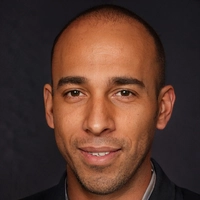On November 19, 2025, International Men's Day will arrive not as a celebration alone, but as a reckoning. Across India, mental health professionals are urging families, workplaces, and communities to confront a quiet epidemic: the emotional isolation of men raised to believe vulnerability is weakness. The trigger? A chilling statistic — only 36% of referrals to NHS-style talking therapies in India go to men, despite government surveys showing they report lower life satisfaction than women. And behind that number? A generation of boys taught to swallow their pain.
The Borivali Moment That Said It All
On November 19, 2024, during the chaotic rush hour at Borivali railway station in Mumbai, a man collapsed emotionally on a crowded platform. He wasn’t injured. He wasn’t shouting. He just sat down, head in hands, tears streaming — and hundreds walked past. Only a few stopped. One offered water. Another called for help. The rest? They looked away. It wasn’t indifference. It was discomfort. A cultural reflex: men don’t break down in public. If they do, it’s easier to pretend it’s not happening.How Depression Hides in Plain Sight
Dr. Sonal Anand, Psychiatrist at Wockhardt Hospitals in Mira Road, Palghar, has seen this pattern for over a decade. "Men don’t come in saying, ‘I’m depressed,’” she says. "They say, ‘I can’t sleep.’ ‘I’m always angry.’ ‘I’ve been drinking more.’ ‘I just don’t care about anything anymore.’" These aren’t lifestyle choices. They’re symptoms. But because society equates masculinity with stoicism, these signs get mislabeled as stress, laziness, or bad temper. The data backs her up. In India, men are three times more likely than women to die by suicide — and often without warning. The emotional suppression starts young. "Boys hear ‘Be a man’ before they learn their own names," Dr. Anand explains. "By 12, they’ve already learned that crying means failure. By 25, they’ve learned to numb it with work, alcohol, or silence. By 40, they’re broken inside — and too proud to say so."Emotional Numbness Is the Real Epidemic
Ms. Netra Rao, Counseling Psychologist at Rocket Health, describes the result as "emotional amnesia." "Many men I work with can’t name how they feel,” she says. "They know they’re tired. They know they’re lonely. But they can’t say ‘I’m sad’ — because that word feels foreign, like a foreign language they were never taught." This isn’t just personal pain. It fractures families. Marriages suffer when men withdraw. Children grow up without seeing their fathers express emotion, repeating the cycle. Workplaces lose productivity as men internalize stress until it explodes — in outbursts, absenteeism, or worse. Rao’s patients often describe feeling like imposters: "I provide. I work hard. So why do I feel like I’m failing?" The answer? Because they were never allowed to fail — emotionally.
Tele MANAS: A Lifeline, But Not Enough
The Government of India launched Tele MANAS in 2022 — a free, 24/7 mental health helpline. It’s a critical step. But usage among men remains low. Why? Stigma doesn’t vanish with a phone number. Many fear being judged by family if they call. Others don’t believe talking helps. "They think, ‘If I can fix a car, I can fix myself,’” says Dr. Anand. "But the mind isn’t a machine. You can’t tighten a bolt on grief."What Needs to Change — And How
Experts agree: the fix isn’t more campaigns. It’s cultural rewiring.- Schools need to teach emotional literacy — not just as an add-on, but as core curriculum. "Boys should learn to say ‘I’m overwhelmed’ the same way they learn multiplication," says Rao.
- Workplaces must normalize mental health check-ins. Not as HR compliance, but as part of team culture. Some Indian tech firms are already piloting "Men’s Circles" — voluntary, peer-led spaces for men to talk without judgment.
- Families need to stop saying "Don’t cry." Start saying, "I’m here. Whatever you feel is okay."

Reimagining Masculinity
The most radical idea? Strength isn’t silence. It’s courage. It’s showing up when you’re broken. It’s asking for help. It’s being a father who cries at his daughter’s graduation. It’s a husband who admits he’s afraid of losing his job. It’s a son who tells his father, "I need you to listen — not fix me." "We’re not asking men to be softer," says Rao. "We’re asking them to be whole." As International Men's Day approaches in 2025, the question isn’t whether India will mark the day. It’s whether the country will finally listen.Frequently Asked Questions
Why do men in India struggle more than women to seek mental health help?
Cultural norms in India condition boys from childhood to suppress emotions with phrases like "Be a man" or "Don’t cry," creating lifelong stigma around vulnerability. This leads to men expressing distress through anger, substance use, or withdrawal rather than sadness — symptoms often dismissed as normal stress. As a result, only 36% of mental health therapy referrals go to men, despite higher suicide rates.
How does depression in men differ from depression in women?
While women often show overt sadness, men’s depression typically manifests as irritability, excessive work, sleep disturbances, increased alcohol or tobacco use, and emotional withdrawal. These signs are frequently misread as personality flaws or work ethic issues, delaying diagnosis. Dr. Sonal Anand notes that men rarely self-identify as depressed — they report physical symptoms instead.
What role does Tele MANAS play in addressing male mental health in India?
Tele MANAS, India’s free 24/7 mental health helpline, offers confidential counseling to men in crisis. But its impact is limited by stigma — many fear judgment from family or colleagues if they call. Experts stress that while the service is vital, it must be paired with community education to normalize its use. Currently, male usage remains disproportionately low despite high need.
What can families do to support men’s emotional health?
Families can start by replacing phrases like "Toughen up" with "I’m here for you." Encourage open conversations without offering solutions. Let men know it’s okay to feel overwhelmed, sad, or scared. Simple acts — like asking, "How are you really doing?" and listening without interrupting — build trust. Research shows men who feel emotionally supported at home are 60% more likely to seek professional help.
Are there signs I should watch for in a male friend or family member?
Watch for sudden changes: increased alcohol or tobacco use, isolation from loved ones, chronic irritability, unexplained fatigue, difficulty concentrating, or neglecting personal hygiene. Men may also overwork or become overly critical. These aren’t personality quirks — they’re red flags. If you notice a pattern lasting more than two weeks, gently suggest talking to a professional. You don’t need to fix it — just be the first person who says, "I’ve noticed you’re not yourself."
Is there progress in changing attitudes toward masculinity in India?
Yes — but slowly. Urban youth, corporate HR departments, and NGOs are increasingly promoting emotional intelligence in men. Initiatives like workplace "Men’s Circles" and school-based emotional literacy programs are gaining traction. Still, rural areas and older generations remain resistant. Experts say real change requires intergenerational dialogue — where sons and fathers talk openly about what "being a man" really means today.
